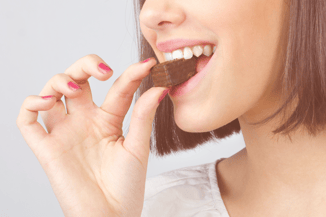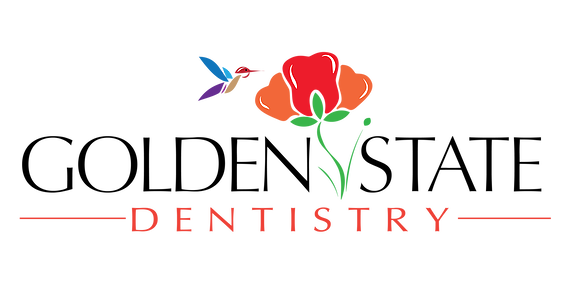
With Halloween and other holidays coming up, sugar consumption is inevitable. The following tips can help you enjoy sugar without ruining your teeth.
1. Limit consumption of sweets.
Sugary treats should be an occasional indulgence, not an every day snack. Bacteria in your mouth feast on the sugar you eat and then turn it into acids that damage your teeth and cause cavities. When you have the munchies, opt for healthy snacks like raw vegetables, fresh fruit, and nuts.
2. Choose your sweets carefully.
Although all sweets have the potential to damage your teeth, some are worse for your teeth than others. For example, sticky and gooey sweets stick to your teeth and allow the sugar to linger on longer in your mouth. Similarly, hard candy like lollipops take longer to dissolve, so you get a steady stream of sugar in your mouth. The longer sugar sits on your teeth, the higher you are at risk of cavities and decay.
3. Eat sweets with a meal.
It's best to eat sugar with a meal, when your saliva production is at its highest. The other food and drink from your meal also help prevent sugar from sticking to your teeth. In addition, it's a good idea to follow your sweets consumption with cheese; this will help restore your mouth's natural pH, neutralizing the acids from the sweets you eat.
4. Drink water after eating sugary treats.
Eating sweets and even drinking sweet beverages (e.g. orange juice, soda, and sports drinks) can leave unwanted sugar behind. Water washes away leftover food that bacteria love to eat. Water also dilutes acids produced by the bacteria in your mouth before they wreak havoc on your teeth.
5. Brush your teeth 30-60 minutes after eating sweets.
Brushing too soon after you finish eating sugary or acidic food can damage the enamel. Right after you eat, acids sit in your mouth and weaken your enamel. By brushing right after, you are helping the acids erode away your teeth. Wait at least 30 minutes for saliva to displace some of the acids. If you are unable to brush 30 minutes after, it's a good idea to brush your teeth before consuming sweet or acidic food and to drink a glass of water after you are finished.
6. Chew a sugar-free gum to help clean your teeth.
Chewing gum helps promote saliva production that displaces sugar from the teeth. In addition, sugar-free gum sweetened with Xylitol can help prevent plaque from sticking to your teeth and reduce decay. It is important to only use sugar-free gum, as ordinary gum contains sugar and can damage your teeth.
7. Get regular dental check ups.
Regular dental check-ups are important to the health of your teeth and gums, especially if you have a sweet tooth. During your check-up, your teeth are professionally cleaned from plaque and tartar that brushing and flossing can't get rid of. Also, at your check-up, your dentist can help you find and fix problems before they require more expensive dental work and more complicated procedures in the future.
To schedule a check-up, call our office (925) 705-7093 or request an appointment online.


.jpg?width=712&name=GSD-Scalloped-Tongue-Causes-and-Treatment-Blog-01.27.2210.21.21%20(1).jpg)











.jpeg?width=425&name=GSD-How-to-Combat-Dental-Plaque-07.22.24-2%20(1).jpeg)



